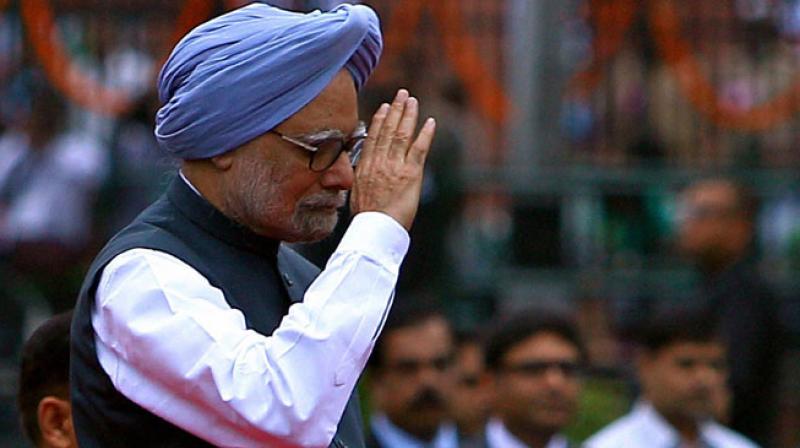Bring back plan panel; reforms still incomplete: Former PM Manmohan Singh

Bengaluru: Former prime minister Manmohan Singh on Wednesday said the process of economic reforms, he was associated with, was “still incomplete” and that a “fresh thinking” was needed to evolve a new design for the country’s social and economic policy.
The policy should be a judicious mix of both high rate of economic growth and a strong focus on containing economic inequalities, said Singh, considered the architect of the economic liberalisation measures unleashed in 1991.
Noting that the opening of new opportunities for people born without social and economic privileges was the beacon behind economic reforms he was associated with, he said the process was still incomplete, and “we need fresh thinking.”
“Development planning and the Planning Commission were designed to ensure that while our economy grew, inequalities did not grow. With the abolition of the Planning Commission fresh efforts have to be made to keep inequality under control,” Singh said.
He was speaking at the inauguration of the academic session of ‘Bengaluru Dr B.R. Ambedkar School of Economics’ here. He said the economic liberalisation that he was associated with in 1991-96 and 2004-2014 was above all the process of opening of new opportunities for people born without social and economic privileges.
Singh was the finance minister in the Narasimha Rao government during 1991-96 and the prime minister for a 10-year period from 2004. Singh said "this was for me the guiding beacon behind our economic reforms."
"I must confess that the process is still incomplete and we need a lot of fresh thinking to work out a new design for our social and economic policy which will be a judicious mix of both high rate of economic growth and a strong focus on containing the growth of economic inequalities, and working actively to reduce so," he said.
Former RBI Governor and Chairman Madras School of Economics Dr C Rangarajan, Chief Minister Siddaramaiah and others were present at the inauguration of the academic session that began with 50 students. Singh noted that the institution was named after B R Ambedkar who was a great legal luminary, a great economist and a social reformer.
The former prime minister called on the faculty and students to pay special attention to the study of ideas and ideals which were dear to Ambedkar. He expressed hope that the scholars coming out of the institution will make a "distinguished contribution in working out a new design of our social and economic policies for a cohesive and inclusive growth."
Singh said it should be combined with the high rate of economic growth, employment generation at a phase "which is robust enough to get rid of unemployment in a reasonable period of time, protect our environment, control of pollution of our natural resource like land, water and air, and having a due regard to the quest of social justice and equality."

